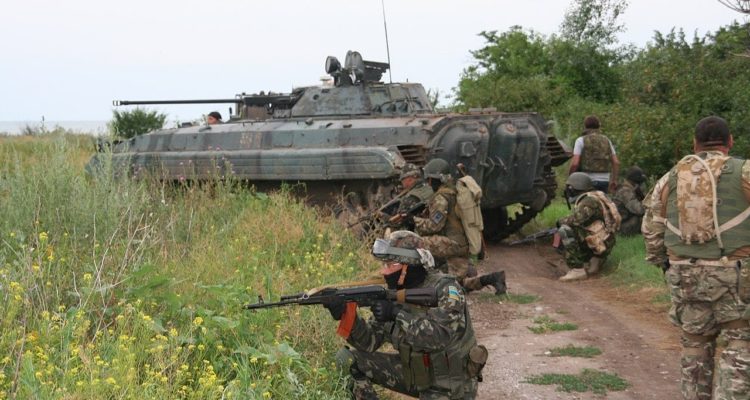The Azov Regiment (sometimes erroneously still termed the Azov Battalion, though the latter folded in 2014) and the threat of “Ukrainian neo-Nazis” has attracted considerable Western press coverage since Russia’s full-scale invasion of Ukraine in February.
From 2014 to 2022, the Azov Regiment was based in the city of Mariupol in southeast Ukraine, and this year the Azov fighters gained global visibility as defenders of the city, which Russia conquered in May after a bloody two-month siege, destroying most of the city in the process.
The Azov Regiment is frequently invoked to conjure what Russian-Israeli historian Vyacheslav Likhachev calls the “myth [of] Ukrainian fascism”, and many Western press sources in 2022 continue to treat the association between “Azov Regiment/Battalion” and “Neo-Nazi” as axiomatic, with some even attempting to draw unsubstantiated links between Azov and white supremacist terrorists in the West.
The “What about Azov Nazis?” canard has become a ubiquitous tu quoque that Russia deploys to problematise Western support for Ukraine, and distract from its own record of atrocities. Literally meaning “you also” in Latin, this logical fallacy is more informally known as “whataboutism”, and has been deployed in Russian propaganda for decades. In cruder terms, one might recall the playground retort, “I know you are, but what am I?”
Read the article by Alasdair McCallum in the Monash Lens.

